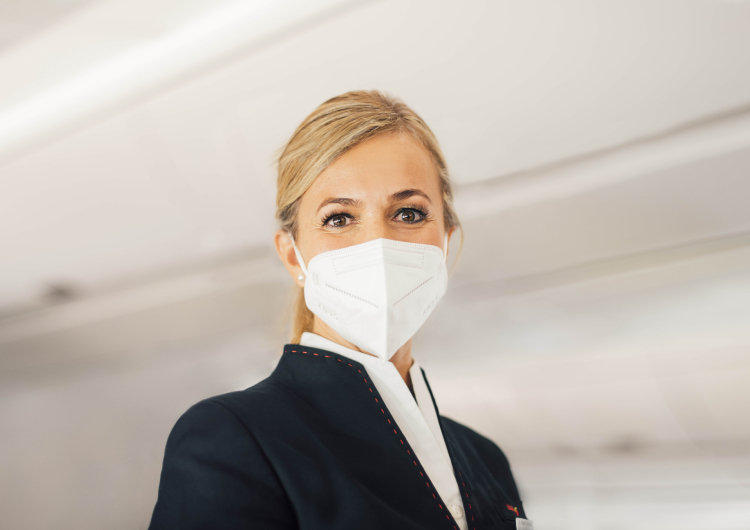They may be faced with staying away while health crises erupt, unsure of local rules or potential travel restrictions. Others will have been at home for a prolonged period and have become used to being there for young children or partners, making it a wrench to work away again.
On top of this, the work environment has changed enormously. Procedures have changed, colleagues may have lost their job. All the stresses of a new job are there on an almost daily basis.
A panel at the December Cabin Operations Safety Conference tackled this challenging subject. Panellists included Steve Sneddon, Senior Manager Crew Experience Virgin Atlantic, Kris Major, European Transport Workers Federation, and Sandra Alves Pontes Human Factors Safety Officer, TAP Portugal with the session chaired by Catherine Chan, Group Safety Manager, Cathay Pacific.
It has always been important to have a confident cabin crew as this translates to the passengers. Maintaining that confidence while a global pandemic is raging is easier said than done, however.
Part of the solution is revamped training programs. IATA, for example, has quickly taken onboard the constantly changing situation so that skills are refreshed or updated as necessary. Listening to air crew and feeding back that knowledge into training has been a key element in this endeavour.
But more important is ensuring the mental wellbeing of cabin crew. Imagine the anxiety of being on furlough, in a lockdown and then having to provide a service within a confined space at 30,000ft. Aircraft have, of course, been proven to be extremely safe environments in terms of virus transmission, but for the individual it is nevertheless a significant adjustment.
“Open digital channels for people to ask questions and raise concerns have been really important,” said Virgin Atlantic’s Sneddon.
Many airlines started or ramped up initiatives to ensure regular transparent communication with crew. Virgin Atlantic, for example, has already trained some crew as mental health first aiders to help colleagues. Cathay Pacific also has more than 50 certified mental first aiders, Kenya Airways has its Embrace program, and there are many, many other examples.
In essence, these efforts acknowledge that emotional safety just as important as other forms of safety. Mental wellbeing should not be a project but a fundamental part of the company culture.
Confidentiality is obviously vital as airlines must give cabin crew the space to voice their concerns. There may be some uncomfortable issues raised and challenges for which there is no obvious solution. But it is important that the parties embark on the journey toward a solution together…



